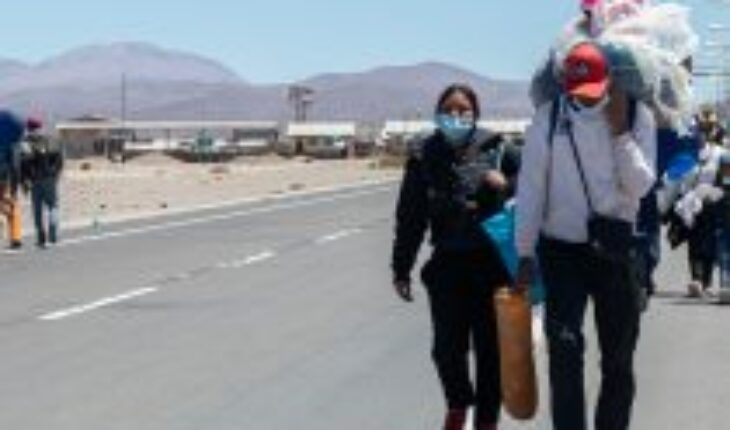On August 31, the Interior Government Commission of the Chamber of Deputies began to analyze the bill, presented on August 10 by Deputy DC Joanna Pérez, which seeks to expand the detention of people in the face of administrative infractions, so that Carabineros and the PDI have new tools to identify irregular migrants or with expired residence permits.
Although the project seeks to collaborate in the detection of people in an irregular migratory situation, to make them available to the Migration Service and thus initiate administrative expulsion procedures in accordance with current law (Law 21,325); it also allows for the detention of migrants, which immediately criminalizes irregular migration. This, despite the fact that article 9 of the aforementioned law indicates with absolute clarity that “irregular migration does not constitute a crime”.
So, the bill that is currently being discussed in the House and that will be voted on in particular and general in the next session; it seeks to extend the legal powers of detention in the face of the existence of mere administrative infractions, which – in some cases – only constitute grounds for expulsion from the national territory, but which do not constitute crimes.
In addition, if this bill is approved, it would be altering the rules of the code of criminal procedure that indicate that the detention of persons is only possible in the face of the commission of a flagrant crime or the existence of a judicial arrest warrant, requested by prosecutors of the Public Ministry to the Courts of Justice.
On the other hand, the motion indicates that once the arrest has occurred, the person will be placed at the disposal of the immigration authority. Currently, the migration authority is the National Migration Service, which has no power to keep persons deprived of liberty in its dependencies, and even less, powers of control over the legality of these detentions, a function of the Guarantee Courts.
And as if that were not enough to reject the project or at least rethink it completely, it does not extend the powers of preventive identity control established in article 12 of Law No. 20,931, which only enable police officers to verify the identity of people over 18 years of age, in public places or freely accessible to the public.
That is, in a period of time of maximum one hour and without moving from the exact place where the identity control is verified, people must prove their identity by exhibiting physically or digitally, documents that support it. In the event that the identity cannot be verified, the police officer must terminate the procedure immediately.
In short, the project is forgetting three elementary principles:
1. Any measure restricting essential rights must comply with the requirements of reasonableness, necessity and proportionality. By failing to do so, the proposal becomes unjustified and arbitrary.
2. Every detained person has the right to be brought without delay before a judge, for the purpose of checking the lawfulness of his detention and verifying the conditions in which the person deprived of liberty is held.
3. In Chile, according to the current Political Constitution of the Republic, it is not possible to make unreasonable or non-proportional distinctions of treatment between nationals or foreigners, otherwise it would be to attack the basic principle of equality before the law and promote rightly unconstitutional reforms.
Given the discussion, it is worth asking, is it reasonable to detain a foreigner whose visa was rejected due to the lack of a requirement?, is the detention proportional to a foreigner who has maintained years of irregular residence and who due to the loss of a job cannot renew a visa?, is it necessary to detain people who were forced to enter the country irregularly for reasons of family reunification or by seeking asylum when fleeing countries where their human rights are seriously violated.
Follow us on
The content expressed in this opinion column is the sole responsibility of its author, and does not necessarily reflect the editorial line or position of El Mostrador.





